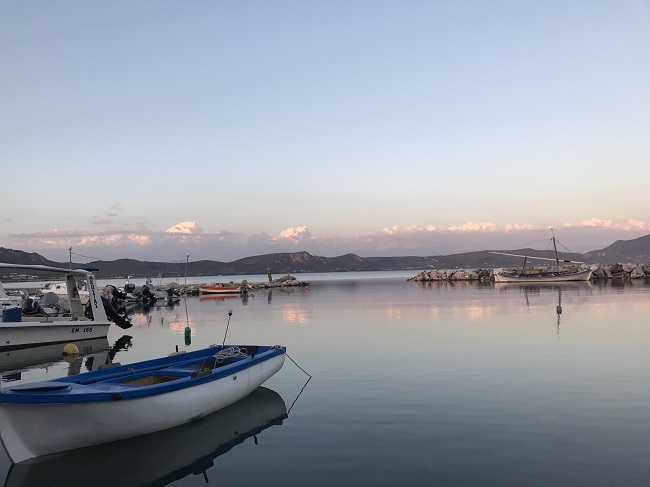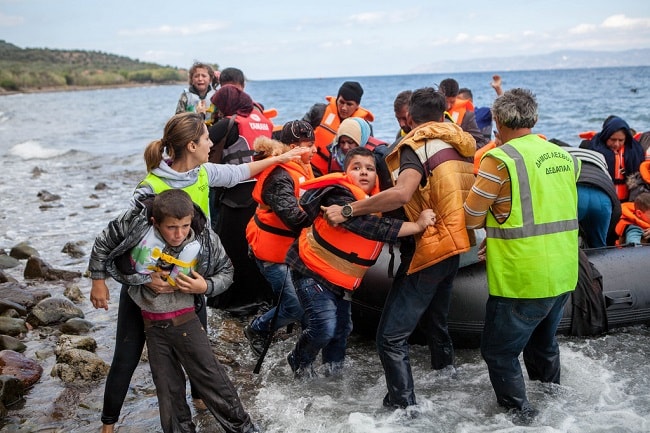Sixty-five million people across the globe were displaced during the 2015-2016 refugee crisis.
Put another way, one out of every 110 people on the planet was forced to flee his or her home. If these people constituted a country, it would be the 21st-largest in the world. And considering that the average length of displacement is currently ten years, transience itself may already seem like a unique sociopolitical state.
But the truth is that displacement – especially in a foreign country – is untenable in a modern world in which every person is obligated to be a citizen of a state and a member of a nation. The most salient fact of refugees’ lives is their status as refugees – not just the resources they possess, or the region where they live. The very fact of being a refugee in the current global political system is intolerable.
Although the refugee crisis is international in scope, among its main drivers are conflict in the Middle East and South Asia – especially the wars in Syria, Iraq, and Afghanistan, which have engulfed millions of people’s lives. The crisis has reshaped global frameworks. It prompted the agreement between Turkey and the EU in which the former agreed to stem the flow of asylum seekers into Europe in exchange for a number of concessions from the latter.
The crisis has also reoriented political viewpoints. The year 2016 will be remembered for a sharp rise in populism, stoked by demagogues who scapegoated refugees to explain systemic inequality and shrinking job markets. The crisis has even revealed the superficiality of international solidarity. Most media attention has been directed at asylum seekers in Europe, and the stress the continent is experiencing, although it hosts only a fraction of the refugees that countries in the Middle East have accepted.
And then, of course, there are the people – millions of whom live in a state of uncertainty and fear, with psychological and physiological trauma, who receive little more than the semi-monthly headline in newspapers and news programs. Families, unaccompanied minors, survivors of war, former political prisoners, young men looking to help their loved ones, the disabled, and countless others risking everything to find safe, stable homes. All must face the bureaucratic maelstrom that is applying for, and gaining, asylum in a foreign country.
The situation on the Greek island of Lesvos exemplifies many aspects of the crisis and its lingering after-effects. More than 250,000 people landed in Greece in 2015, followed by over 100,000 in 2016. Yet fewer than 10,000 people have arrived in 2017 so far, a result of the Turkey-EU agreement. Lesvos, which is about eight kilometers away from Turkey’s western coast, was the landing point for a large percentage of those asylum seekers.

Asylum seekers crossing the Aegean Sea in recent years frequently arrived at the Greek island of Lesvos [Mohamad Saleh/JMEPP]
Yet even with amenities like play spaces for children and the freedom to exit and re-enter the camp (a luxury not enjoyed in many other camps around the world), many of Kara Tepe’s inhabitants describe it as an open-air prison. They acknowledge that it is the best that can be hoped for given the current global political climate, but they are unable to deny the marginalization and disenfranchisement that residency in a camp necessarily implies. When cooped up in caravans called isoboxes, and not allowed to work until their asylum applications are processed, even the best possible scenario still feels profoundly disappointing.
This is not due to the specific circumstances in which they are living. It is due to their status, and the political and legal constraints associated with it.
What goes overlooked in considerations of the displaced is the importance of dignity. Kara Tepe’s inhabitants want the opportunity to work and live in peace, a point which itself seems condescending to articulate but that is regularly forgotten, taken for granted in debates over displacement but never truly considered or felt by those organizing the debates. Their status not as citizens or nationals but as refugees strips them of that freedom. They are forced to confront a political and economic system that has no space for them, and the opportunities that all people crave elude them at every turn.
So what can be done? Maybe it is only appropriate to reiterate the obvious, if only to underscore the importance of not taking it for granted.
Nonprofit organizations and governmental institutions must make the experience of displacement bearable. One way to do so is to focalize entities whose primary missions are aid-provision and the rescuing of individuals fleeing danger.
Movement on the Ground works to provide humanitarian aid to men, women, and children fleeing their homes as a result of climate change, poverty, and war. At Kara Tepe they are primary innovators, working to help make the space as bearable for its inhabitants.
Emergency Centre Response International provides emergency response and aid in life-threatening environments. They coordinated with the Greek coastguard at the height of the crisis in 2015 and continue to do so, saving thousands of lives by shuttling asylum seekers traveling across the Aegean Sea to safety. Both organizations represent the very best of people – individuals doing everything in their power to help those most in need.
It may be argued that this is not radical enough: that it is necessary to anchor the refugee crisis in a larger political framework. But at this precise moment, with the future of the Middle East fragile and uncertain, appealing to any higher ideology or worldview is reckless.
Displaced people are not pawns to be used in political debates – they are people whose lives need to be respected. While ending the conflicts that caused the crisis would be ideal, we have a moral responsibility now to focus on the people who are suffering.
